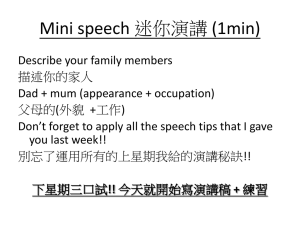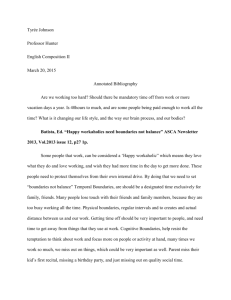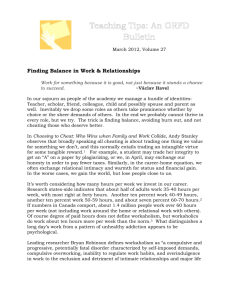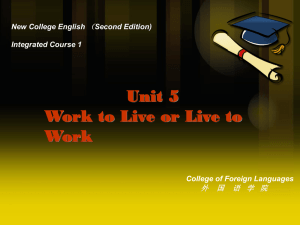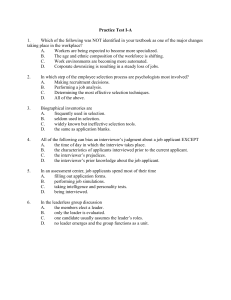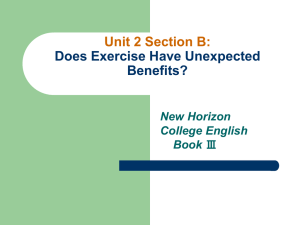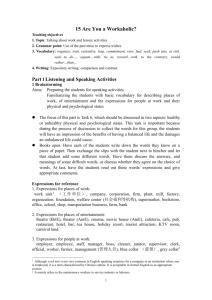workaholic
advertisement
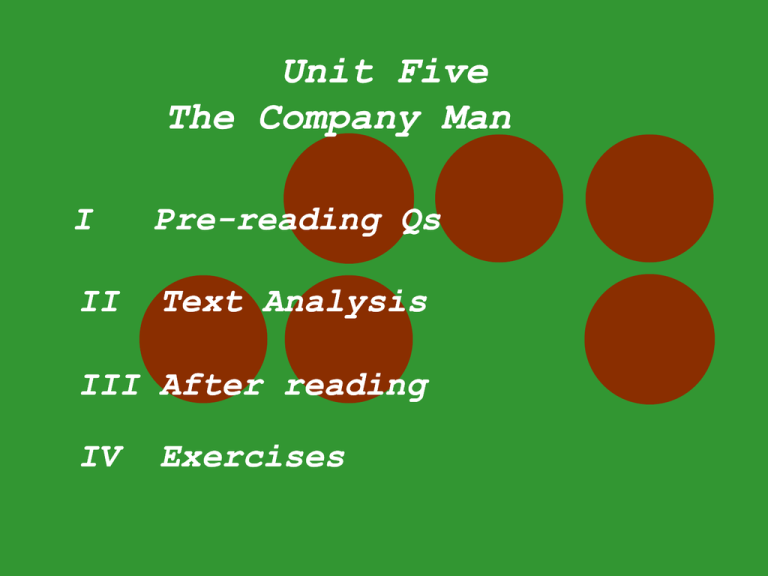
Unit Five The Company Man I Pre-reading Qs II Text Analysis III After reading IV Exercises I Pre-reading Background Information -About the author Ellen Goodman (1940-), journalist and columnist who won a Pulitzer Prize in 1980 for commentary. She has written for Newsweek, the Detroit Free Press, and the Boston Globe. Discussion Qs: - What do you think is the life of a typical workaholic like? -How important do you think work is to a person? T or F? workaholics are driven by stress and an obsessive need to control the outcome of their jobs. Some workaholics are as happy as can be in their work. There are workaholics whose fear of failure and the need to control their lives forces them to work harder and harder until they suffer physical and emotional side effects. Workaholics are mentally healthy and work hard because it gives them great satisfaction. Unhealthy work addictions are best dealt with by counselors and therapists who specialize in workplace problems. Are you a healthy workaholic? Is work more exciting than family or anything else in your life? Do you often take work with you to bed? Have your family and friends given up expecting you to be on time because of your work demands? Do you become impatient with people who have priorities besides work? Is the future a constant worry for you even when things are going well? Have your long hours at work hurt your personal relationships? Do you think about work while driving, falling asleep or when others are talking? Is your life full of work-related stressors that affect your ability to sleep, diet and health? Origin Wayne Oates, a professor of psychology of religion at Southern Baptist Theological Seminary. However, it was the appearance of Oates's book Confessions of a Workaholic in 1971 that propelled that term and prompted many writers to start using the suffixes -aholic, -holic, or -oholic to describe "all-consuming obsessions," not all of them so serious. -holic golfaholic, footballaholic, basketball-oholic, bingoholic, leisureholic; beefaholic, peanuntholic, ice creamaholic; hashaholic (for hashish) or mariholic (for marijuana), tobaccoholic book-oholic, catalogueoholic, eclipsoholic, gambler-oholic, game show-oholic, noteoholic, or phone-oholic. What is a workaholic? A workaholic is a person addicted to work. This addiction may be pleasurable to the victim or it may be burdensome and troubling. Workaholism is believed by some to be a disease, akin to obsessive compulsive disorder. II Text Analysis Text Structure: Para 1: introduction Para2-6: reports how devoted the man was to his work. Para7-13: describes Phil’s role in his family. Para 14-16: reports the company president’s inquiry for his successor. Structural Analysis: Short Ss+ long Ss (varies their weight and achieves emphasis and impact.) Rhetorical Features: details to illustrate the point the author wants to emphasize Para 9: Para 10: Para 11: Language points: -precisely: exactly eg: They arrived at five o’clock ~. -overweight: weighing more than is normal, necessary, or allowed, esp. having more body weight than is considered normal or healthy for one’s age or build cf: -stout: polite term for fatness. Person with a thickset, bulky figure; eg: Even slim girls can become stout matrons. -pudgy: short and fat; eg: His pudgy fingers look really funny. - plump: pleasing fullness of figure; - eg: Everybody loves Rita, the plump, rosy little girl. - chubby: person who is round and plump; - eg: A chubby toddler; chubby cheeks -Fat: excessive weight and is generally unfavorable in its connotations eg: Charlie is not merely overweight but downright fat. - obese: implies gross overweight eg: …though stout, not obese. - fleshy: a not necessarily excessive abundance of flesh eg: Susan quite likes her boyfriend’s firm, fleshy arms. -survive: to live longer than; to outlive eg: It’s amazing that she should have ~d all her children and grandchildren. My father ~d my mother by four years. -marketable: wanted by purchasers or employers eg: They have failed to launch a ~ model for years. It is a good idea to list your ~ skills before heading for the job fair. -widow: a woman whose husband has died, and who has not married again widower: widow v. : to make a widow or widower of sb. eg: She calls her widowed mother almost every day. Straighten out : to solve or settle; to remove difficulties( from sth.) or the doubt or ignorance (in sb.’s mind) eg: We need someone capable of straightening out all the confusion. III After Reading Text II

